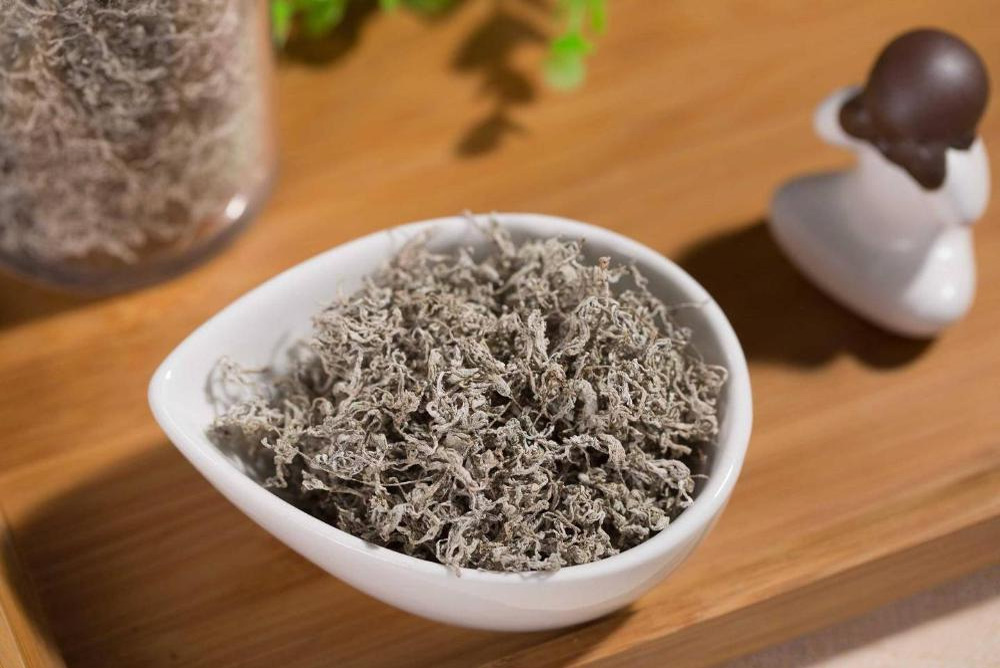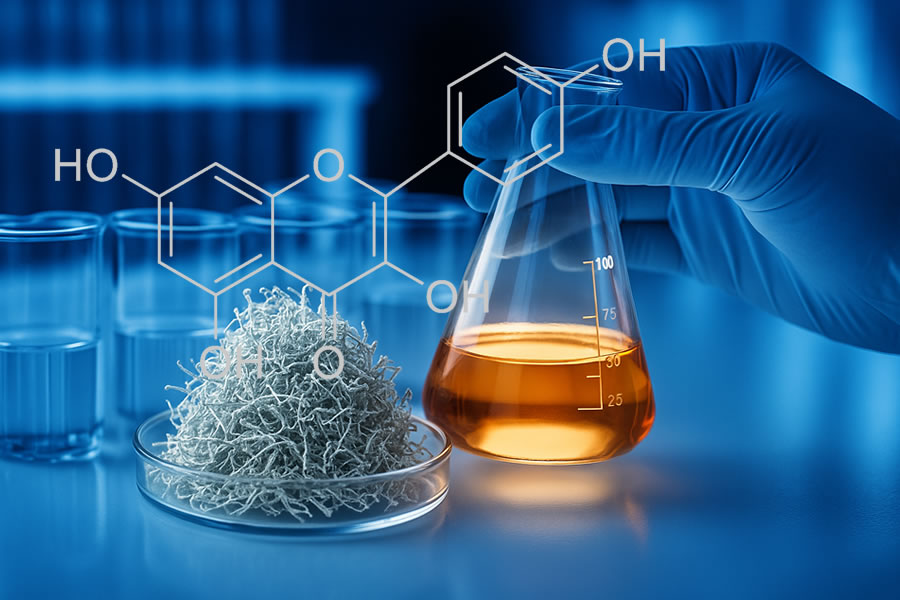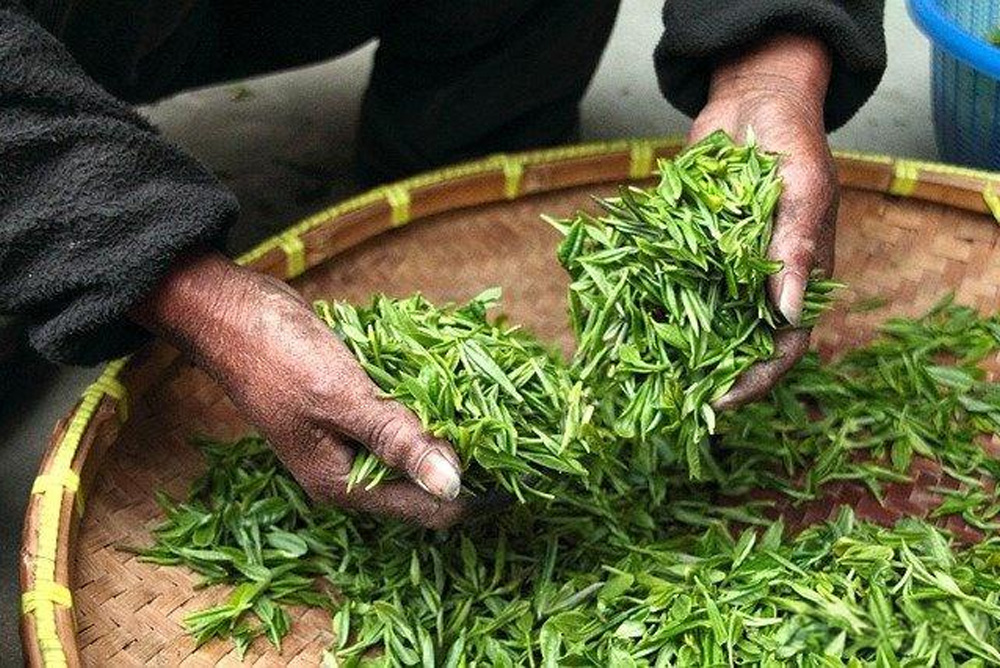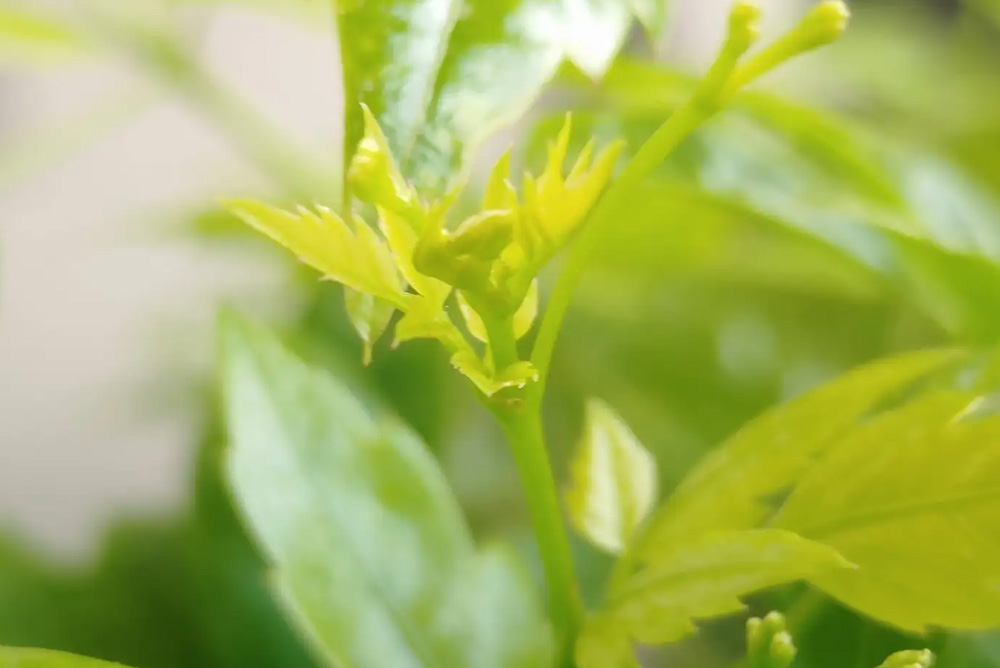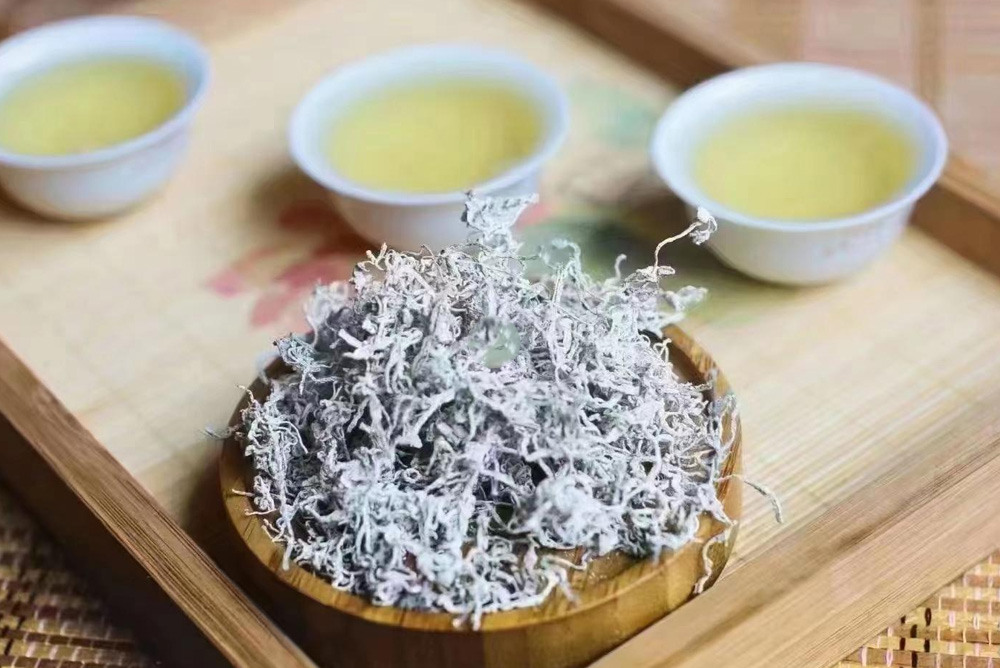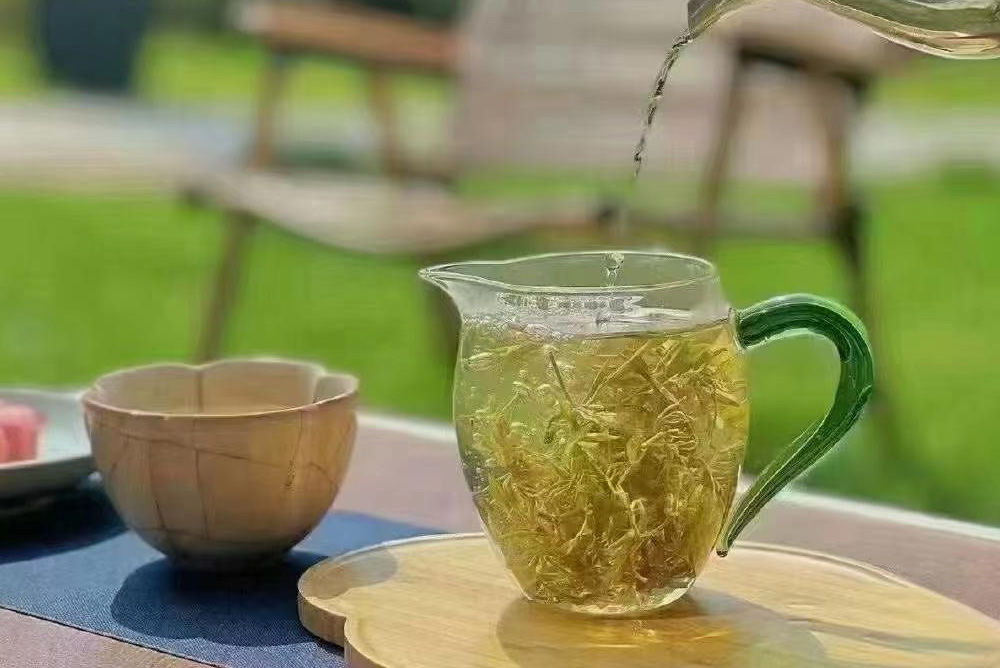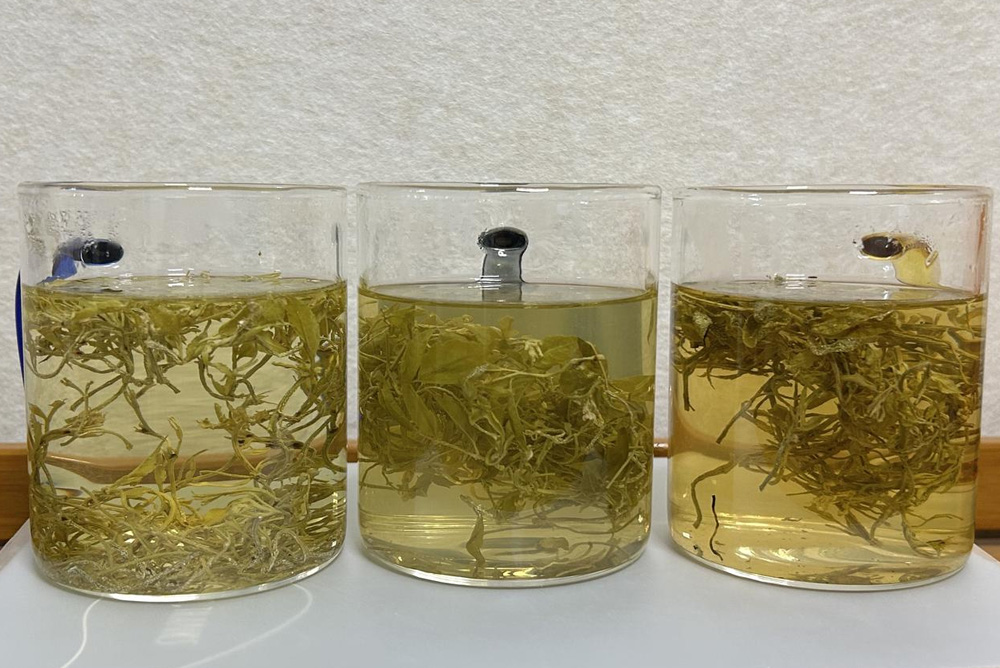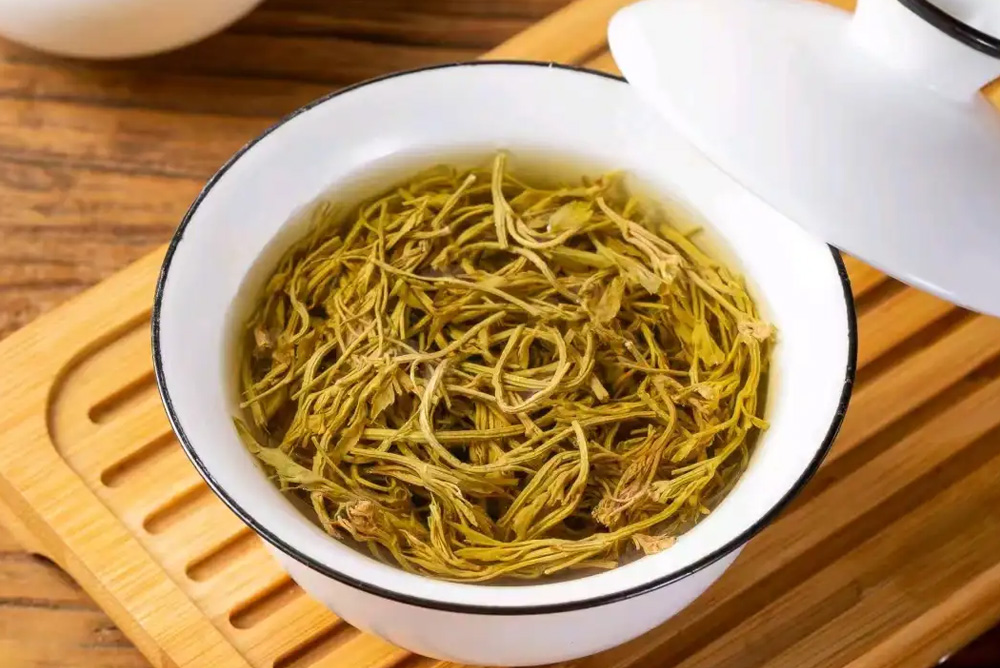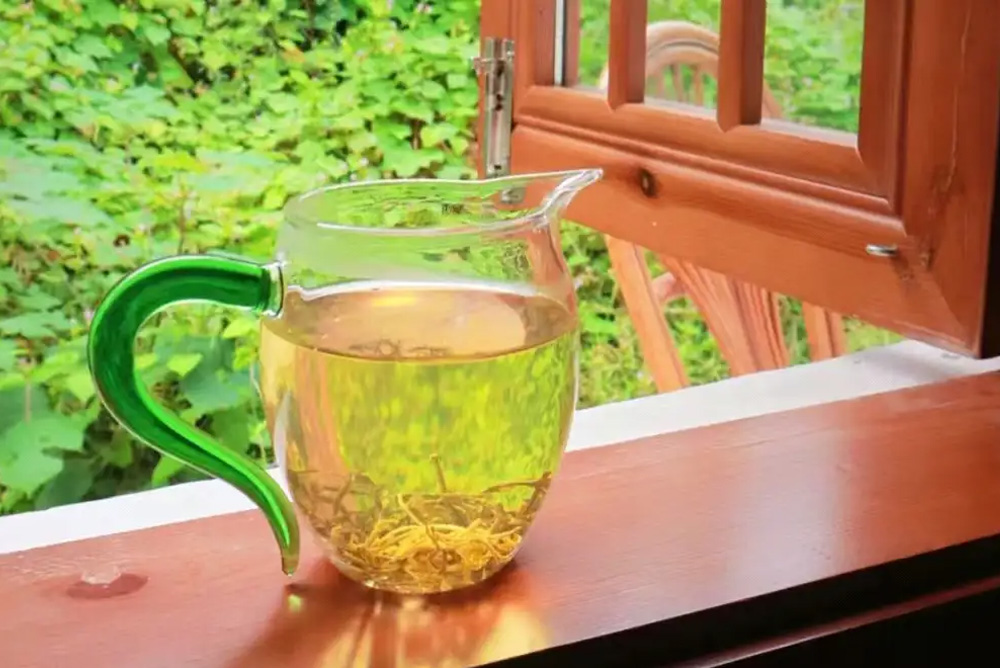One of the most fascinating qualities of vine tea (ampelopsis grossedentata) is its signature sweet aftertaste, known in Chinese tea culture as huigan (回甘). Unlike ordinary teas that leave a simple finish, vine tea transforms from a light bitterness to a long-lasting sweetness that lingers on the tongue and throat. But why does this happen? Let’s explore.
The Experience of Huigan in Vine Tea
When you first sip vine tea, a light bitterness brushes the tongue. The tea’s aroma gently fills the mouth, but the sweetness does not appear immediately. Instead, it develops gradually — sometimes after several sips.
Soon, the tongue feels more hydrated, and a soft sweetness spreads across the palate. If you then drink plain water, the sweetness intensifies dramatically, turning the water into a honey-like sensation. This delayed but refreshing aftertaste is what makes vine tea unforgettable.
Traditional Explanations for Sweet Aftertaste
Tea drinkers and scholars have long tried to explain the mystery of vine tea’s huigan. Here are three common theories:
1. A Protective Film on the Tongue
Some believe compounds in vine tea form a thin film on the tongue, temporarily blocking taste perception. When you drink water afterward, the film is “washed away,” releasing a clear, sweet sensation.
2. The Balance of Bitterness and Sweetness
Another explanation is contrast. Just as water may taste bitter after eating sugar, the bitterness of tea makes the following water taste sweet. With vine tea, once the tongue adapts to its mild bitterness, water feels refreshing and naturally sweet.
3. The Role of Flavonoids
Scientifically, vine tea is rich in flavonoids, especially dihydromyricetin (Ampelopsin). This compound is thought to influence the tongue’s taste receptors, creating a delayed perception of sweetness. While research continues, this unique interaction sets vine tea apart from traditional teas.
Why This Matters for Tea Lovers
The sweet aftertaste is more than just a pleasant surprise — it’s a hallmark of quality vine tea. It reflects the tea’s high flavonoid content, purity, and authenticity. For health-conscious consumers, this also signals the presence of bioactive compounds that support wellness, including antioxidant and liver-protective benefits.
Discover Authentic Vine Tea with JINQI
The sweet aftertaste of vine tea (ampelopsis grossedentata) is both a cultural delight and a natural wonder. Whether explained by tradition or modern science, it adds to the charm of this rare herbal tea and keeps drinkers coming back for more.
At JINQI Vine Tea Co., Ltd., we proudly cultivate authentic vine tea in Laifeng County, ensuring every sip carries this unique huigan experience. Backed by 20+ years of expertise and GMP-certified production, we deliver premium vine tea to global partners.
👉 Contact JINQI today to source authentic vine tea directly from the origin.
FAQs
Q1: Why does vine tea taste sweet after drinking?
Because its flavonoids, especially dihydromyricetin, create a delayed sweet aftertaste.
Q2: Does all ampelopsis grossedentata have a sweet aftertaste?
Yes, high-quality vine tea naturally produces this unique huigan.
Q3: Is the sweet aftertaste a sign of good quality vine tea?
Absolutely. A clean, lasting sweetness indicates authentic, nutrient-rich tea.

